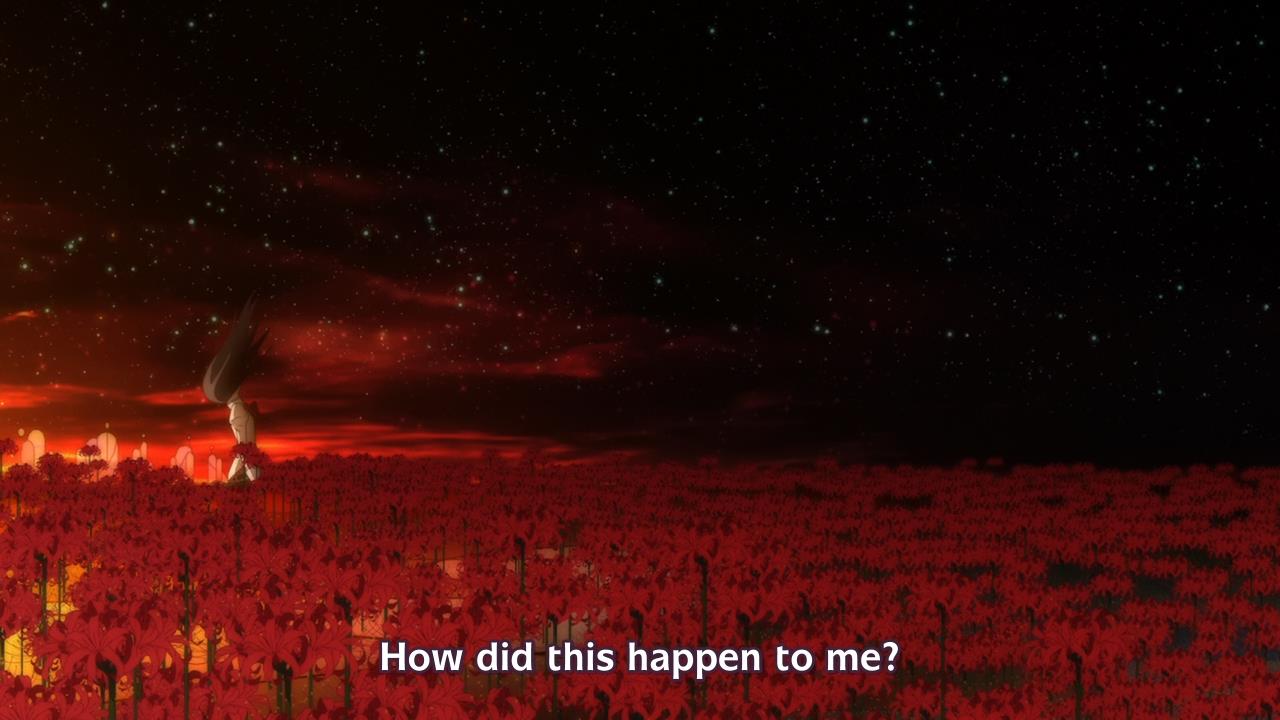Management: As per usual, questions rewritten to better map to responses.
Question:
Why do all harem anime contain casts of unbelievable characters and avoid all long-lasting drama or relationship changes like the plague? Do we need a deconstruction of this genre to make it worth anything?
Someone Else’s Answer:
We had a deconstruction. It was called School Days.
Question:
From what I’ve heard, School Days doesn’t make the harem genre make sense in the way Madoka and Evangelion do – those shows make their genre elements make sense in the context of a specific world. Couldn’t there be a harem where the characters actually make sense as people in the same way?
Bobduh:
Evangelion and Madoka work not because they’re deconstructions, but because they’re good stories that happen to have the aesthetic trappings of certain genres. The fundamental nature of harems is to be unrealistic power fantasies, making good storytelling pretty close to impossible – if you make a harem with well-written, realistic characters and relationships, it generally ceases to be a harem and becomes a romance instead
Question:
But most anime romances seem to just be love triangles, where in the end the main character abandons the actually complementary romantic choice to stick with the weird/sickly/frail girl. I haven’t seen a single romance where the main character actively pursues both girls. What makes the “fundamental nature” of this genre less storytelling-friendly than magical girls or mecha? And how about The World God Only Knows, doesn’t that kind of work in this territory already?
Bobduh:
There are a few elements to discuss here, so I’ll take them one at a time.
First, you’re making some pretty broad assumptions about romance there. They’re not all about love triangles, and the nature of the characters involved is a lot more diverse than the setup you’ve outlined.
A romance anime where the MC actively courts both females
School Days probably is what you’re looking for – it’s pretty hard to have a protagonist remain sympathetic while willfully courting multiple women. School Days plays this straight; most harems play it for laughs, because in a realistic situation it comes off the way it actually is – dickish and narcissistic. The World God Only Knows only maintains sympathy for its protagonist and works on a narrative level by combining comedy, amnesia, and the fact that his harem-acquiring is based on an unrealistic, fantastical plot contrivance that forces him to act this way. It’s also self-aware and constantly draws attention to the tropey nature of anime characters, further distancing itself from reality. This is necessary; the closer this situation veers to reality, the closer it veers towards the MC being an asshole.
Fundamental nature of genres
The way I see this is that for magical girl shows it’s “girl transforms into frilly version of self with powers to fight evil.” With mechas, it’s “boy pilots giant robot.” Both these core concepts are silly, but they don’t inherently fight against good storytelling or characterization. Meanwhile, harems are fundamentally “boy/girl is surrounded by lovers who fight for their affection.” There are a lot more hoops you have to jump through to make a premise like that valid for a meaningful story – it’s not impossible, but it’s more of an inherently problematic premise than either of the other two, and seems very difficult to justify in a way that respects all of its characters and works towards a coherent and worthwhile point. I think School Days actually does this, but it does it by saying “all these characters are insecure and dependent, the MC is emotionally dead, and this genre is a rancid pit” – it doesn’t create a distinct story using the trappings, it just attacks its own genre.
Deconstructions
I honestly just don’t find deconstructions that interesting in the abstract. I don’t need a deconstruction to tell me that boys riding giant mechs is a silly idea – like I said originally, Evangelion and Madoka work because they are less interested in tearing down their genre than they are in telling great stories and saying meaningful things using some of the tools of those genres. To me, this is less deconstructing the genre than redeeming it – finding something meaningful to say with traditionally meaningless tools. I find School Days a lot less impressive than those works because (along with it having a much lower standard of aesthetic craft and storytelling) it never goes any further than tearing down its genre – but like I said, the harem genre is a very hard one to tell a great or meaningful story within, so perhaps that’s just the best a show can do with those raw materials.
Like this:
Like Loading...

